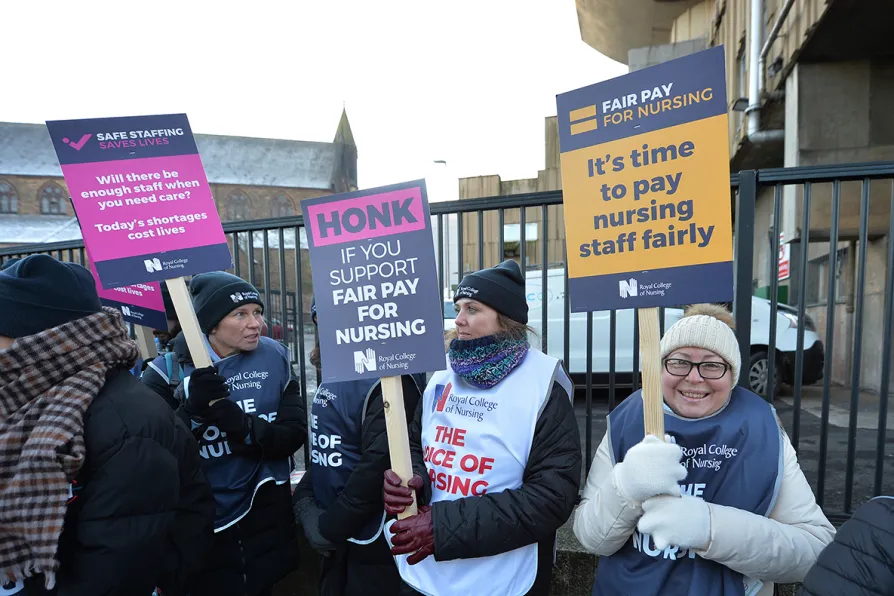A Dutch investigation found seven internationally renowned Holocaust and genocide experts, including Israelis, concluded Israel’s actions in Gaza constitute genocide, despite a campaign of denial and disinformation from the US state, writes TERRY HANSEN

 Members of the Royal College of Nursing (RCN) on the picket line outside the Royal Liverpool University Hospital in Liverpool as nurses in England, Wales and Northern Ireland take industrial action over pay
Members of the Royal College of Nursing (RCN) on the picket line outside the Royal Liverpool University Hospital in Liverpool as nurses in England, Wales and Northern Ireland take industrial action over pay
THE Tories are already fighting the next general election while remaking Britain into some sort of US Republican 1950s version of society.
The Tories have promoted the issue of refugees and migrants crossing the Channel, in a dog-whistle political campaign aiming to shore up their vote.
Other issues of racism have come to the fore, including the use of discriminatory stop and search (overwhelmingly done by the Metropolitan Police) as well as strip-searching mainly black children in our schools.

Every Starmer boast about removing asylum-seekers probably wins Reform another seat while Labour loses more voters to Lib Dems, Greens and nationalists than to the far right — the disaster facing Labour is the leadership’s fault, writes DIANE ABBOTT MP

DIANE ABBOTT explodes the anti-migrant myths perpetrated by cynical politicians and an irresponsible mass media

Our Foreign Secretary now condemns Israel in the Commons, yet Britain still supplies weapons and intelligence for its bombing campaigns — as the horror reaches perhaps the final stage, action must finally replace words, writes DIANE ABBOTT MP

The BBC and OBR claim that failing to cut disability benefits could ‘destabilise the economy’ while ignoring the spendthrift approach to tens of billions on military spending that really spirals out of control, argues DIANE ABBOTT MP














